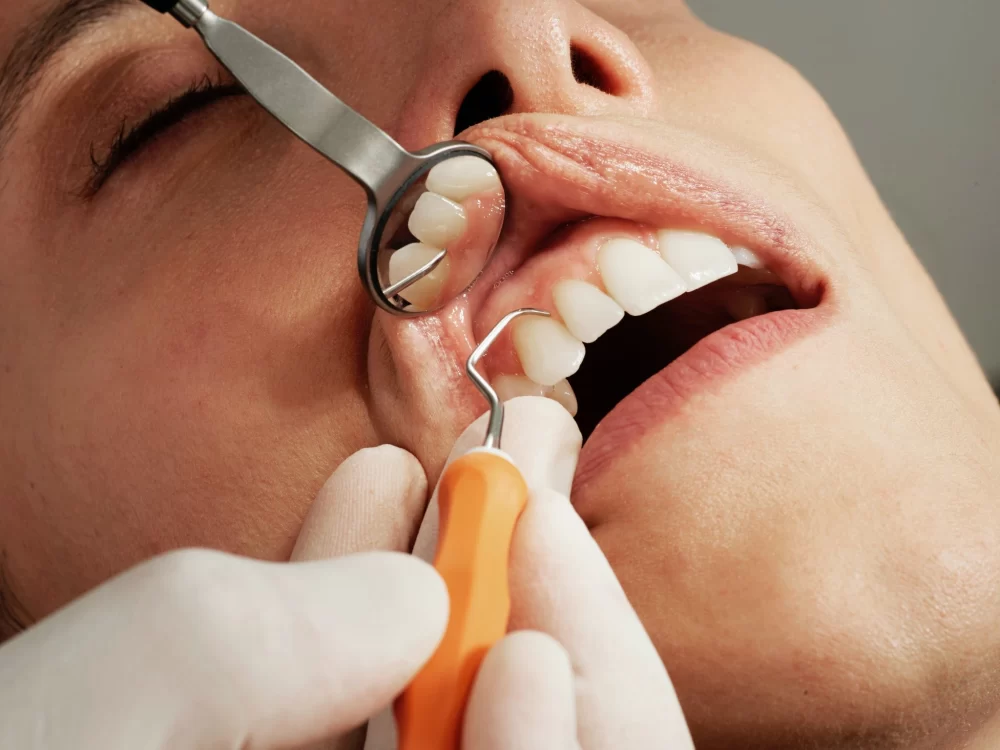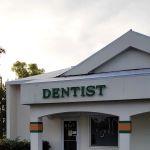
- 1-role-of-regular-dental-cleaning-in-oral-health
- 2-significance-of-oral-checkups-for-prevention
- 3-long-term-benefits-of-consistent-care
- 4-common-misconceptions-about-dental-cleaning-and-checkups
- 5-how-to-maintain-a-regular-dental-care-routine
1. The Role of Regular Dental Cleaning in Maintaining Oral Health
Regular dental cleaning is a cornerstone of maintaining a healthy mouth. Over time, plaque and tartar build up on teeth despite daily brushing and flossing. Professional cleaning performed by a dentist or dental hygienist removes these deposits efficiently, preventing decay and gum disease.
1.1 What Happens During a Professional Dental Cleaning
During a dental cleaning session, specialized tools are used to carefully scrape away plaque and tartar from all tooth surfaces, including areas hard to reach at home. The process also includes polishing to smooth the teeth, which helps prevent future plaque accumulation. This thorough cleaning helps reduce the risk of cavities and gum inflammation.
1.2 Impact on Gum Health
Gum health greatly benefits from regular cleaning. Removing tartar buildup reduces the inflammation that leads to gingivitis, the earliest stage of gum disease. If untreated, gingivitis can progress to periodontitis, a serious condition that can cause tooth loss. Regular cleanings help maintain strong, healthy gums by preventing this progression.
2. The Significance of Oral Checkups for Early Detection and Prevention
Oral checkups go beyond cleaning—they are critical for detecting potential issues early before they become serious problems. A routine dental exam includes evaluation of teeth, gums, tongue, and other soft tissues in the mouth, as well as screening for oral cancer and other abnormalities.
2.1 Early Detection of Dental Problems
During checkups, dentists can identify cavities, cracks, or signs of infection that may not yet cause symptoms. Early intervention often means simpler and less costly treatments. For example, catching a cavity early can prevent the need for root canals or extractions.
2.2 Monitoring Overall Oral Health and Hygiene Habits
Regular visits allow your dentist to assess how well your oral hygiene routine is working and suggest improvements tailored to your specific needs. This personalized guidance helps patients avoid common pitfalls and maintain better oral health over time.
3. Long-Term Benefits of Consistent Dental Cleaning and Checkups
Consistency in dental care leads to numerous benefits that extend beyond just healthy teeth and gums.
3.1 Prevention of Serious Dental Conditions
Routine cleaning and checkups significantly reduce the risk of developing advanced periodontal disease, tooth decay, and even systemic conditions linked to oral health, such as heart disease and diabetes. This preventative approach saves pain, money, and time in the long run.
3.2 Enhanced Confidence and Quality of Life
Maintaining fresh breath, a bright smile, and healthy teeth contributes to higher self-esteem and better social interactions. Many patients report feeling more confident after committing to regular dental care.
4. Common Misconceptions About Dental Cleaning and Oral Checkups
Despite the clear benefits, some people delay or avoid dental visits due to misconceptions.
4.1 “I Brush Well Enough, So I Don’t Need Professional Cleaning”
While good home care is essential, it cannot completely replace the thoroughness of professional cleaning, especially when it comes to tartar removal and early problem detection.
4.2 “Dental Visits Are Painful or Uncomfortable”
Modern dental practices prioritize patient comfort. Most cleaning sessions are painless, and regular visits can actually reduce the need for more invasive treatments that cause discomfort.
5. How to Maintain a Regular Dental Care Routine Effectively
Establishing and maintaining a routine that includes regular dental cleaning and oral checkups is easier than many think with the right approach.
5.1 Scheduling Consistent Appointments
Setting reminders for biannual visits and booking ahead ensures you don’t skip crucial appointments. Many dental offices offer flexible scheduling to accommodate busy lifestyles.
5.2 Combining Professional Care with Daily Oral Hygiene
Brushing twice daily, flossing, and using mouthwash complement professional care, creating a comprehensive defense against dental issues.
5.3 Seeking Expert Advice and Quality Products
For personalized recommendations on dental products and services, visit Dentistry Toothtruth. Their expert guidance helps you find the most suitable solutions tailored to your oral health needs.







 Grand Avenue Dental Center4.0 (422 review)
Grand Avenue Dental Center4.0 (422 review) Desert Ridge Periodontics & Implant Dentistry4.0 (61 review)
Desert Ridge Periodontics & Implant Dentistry4.0 (61 review) Gregg W Jepson DMD5.0 (7 review)
Gregg W Jepson DMD5.0 (7 review) Maya Dental3.0 (6 review)
Maya Dental3.0 (6 review) Fawcett Tod R DDS5.0 (9 review)
Fawcett Tod R DDS5.0 (9 review) Raleigh Periodontics and Implant Dentistry5.0 (179 review)
Raleigh Periodontics and Implant Dentistry5.0 (179 review) The Importance of Oral Health Education During Pregnancy for a Healthy Pregnancy
The Importance of Oral Health Education During Pregnancy for a Healthy Pregnancy Best Tips for Brushing Your Teeth Properly for Healthy Gums: Essential Techniques for Oral Health
Best Tips for Brushing Your Teeth Properly for Healthy Gums: Essential Techniques for Oral Health Why Skipping Dental Checkups Can Lead to Bigger Oral Health Problems
Why Skipping Dental Checkups Can Lead to Bigger Oral Health Problems Advantages of Porcelain Dental Restorations
Advantages of Porcelain Dental Restorations How Can Diabetes Cause Tooth and Gum Problems? Preventing and Managing Oral Health Issues
How Can Diabetes Cause Tooth and Gum Problems? Preventing and Managing Oral Health Issues Healthy Habits for Promoting Good Oral Health and Hygiene: Tips for a Healthy Smile
Healthy Habits for Promoting Good Oral Health and Hygiene: Tips for a Healthy Smile